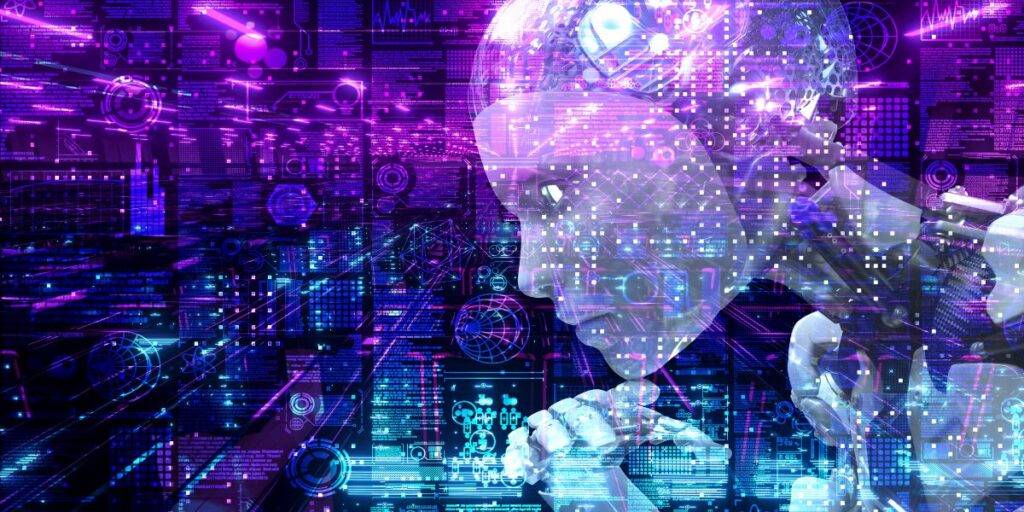
As technology advances, it’s natural to wonder about the impact on employment opportunities. Some worry that artificial intelligence (AI) will lead to job loss and the obsolescence of certain careers. However, there are certain fields that are not negatively impacted by the increasing use of digital systems and AI. In this article, we’ll explore some of these careers and why they are resistant to automation.
Banking
Banking is a secure and well-paying field that will continue to thrive in the coming years despite the growth of AI. While technology may be used for certain tasks, the industry still requires human interaction and expertise. For example, a bank teller may use a computer to process transactions, but they also provide customer service and assistance with financial decisions. The banking industry also has high social acceptance and offers excellent salaries, making it a desirable career choice.
Commerce
Investment-related industries, such as mutual fund management, investment banking, equity research, and venture capitalism, are flourishing and always in need of skilled workers. These careers require a high level of expertise and often involve making complex financial decisions. While technology may be used to analyze data and make predictions, the final decision-making power still rests with human experts. Commerce students should consider making a career in this field.
Legal
The practice of law involves giving legal advice and representing clients in courts, tasks that cannot be effectively done by computers. Lawyers may specialize in a particular area, such as tax law, real estate, or wills and trusts, and are responsible for helping their clients understand and protect their rights. The ability to interpret and apply the law requires critical thinking and problem-solving skills that are uniquely human. While some lawyers work primarily in the courtroom, others carry out most of their work outside the courts, drafting contracts, mortgages, and other legal documents.
Medicine
The field of medicine has incorporated technology, but there will always be a need for human practitioners. Allopathic medicine, in particular, requires a high level of skill and expertise, and the use of new technology, drugs, and equipment makes it an exciting and challenging career. While AI may be used for certain tasks, such as analyzing medical images or processing data, the personal touch and judgment of a doctor is irreplaceable.
Heading: Insurance
The liberalization policy in India has led to rapid growth in the insurance industry, with numerous job opportunities available for those with the right skills and qualifications. Insurance agents provide a personal touch and assist clients in making important financial decisions. While AI may be used for certain tasks, such as processing claims or analyzing data, the human element is essential in this industry.
Education and Academics
Teaching is a career that requires personal interaction and the ability to inspire and guide students. While technology may be used in the classroom, it cannot replace the role of a teacher in providing a comprehensive education. Teachers must be able to adapt to the needs and learning styles of individual students and facilitate critical thinking and problem-solving.
Social Work
Social work involves helping individuals and communities in need, often through counseling, advocacy, and support. This field requires a high level of empathy and interpersonal skills, making it resistant to automation. Social workers must be able to build relationships and understand the unique challenges and needs of their clients.
Arts and Culture
Creative fields, such as art, music, and literature, rely on human inspiration and talent. While technology may be used in the production and promotion of artistic works, it cannot replace the originality and uniqueness of human creations. These careers require creativity, passion, and the ability to express oneself in unique ways
Customer Service
Customer service is another field that requires human interaction and the ability to problem-solve and adapt to different situations. While AI may be used for certain tasks, such as answering frequently asked questions or routing calls to the appropriate department, there are still many instances where customers need the personal touch and assistance of a human representative. Customer service representatives must be able to communicate effectively, listen actively, and resolve issues in a timely and satisfactory manner.
Human Resources
Human resources (HR) is a field that requires a high level of interpersonal skills and the ability to assess and manage talent. While AI may be used for tasks such as resume screening and scheduling interviews, HR professionals are still responsible for making final hiring decisions, evaluating employee performance, and handling sensitive issues such as harassment and discrimination. HR professionals must be able to build relationships and communicate effectively with employees and management.
Public Relations
Public relations (PR) is a field that involves building and maintaining relationships with the public, media, and other stakeholders. PR professionals must be able to communicate effectively and adapt to different audiences and situations. While AI may be used for tasks such as analyzing media coverage and generating reports, the personal touch and strategic thinking of a PR professional is irreplaceable.
Some more questions related AI
While AI has the potential to automate certain tasks, there are many careers that require human interaction and skills that cannot be replicated by machines. It is unlikely that AI will completely replace human jobs in the near future.
Industries that rely on repetitive tasks or processes are most at risk of being impacted by AI. For example, manufacturing and data entry are two industries that are already seeing the adoption of AI for tasks such as assembly line work and data input.
To prepare for a career that may be impacted by AI, it is important to stay up-to-date on developments in technology and to develop skills that are uniquely human, such as creativity, critical thinking, and emotional intelligence. It is also a good idea to consider careers that require a high level of personal interaction, such as teaching, social work, customer service, and HR.